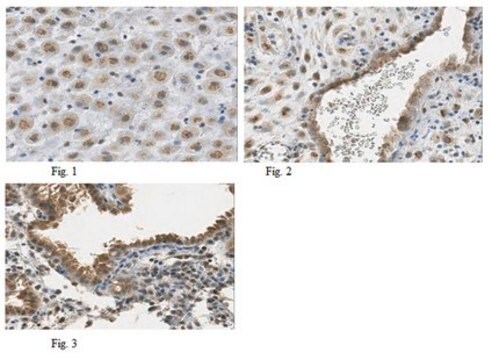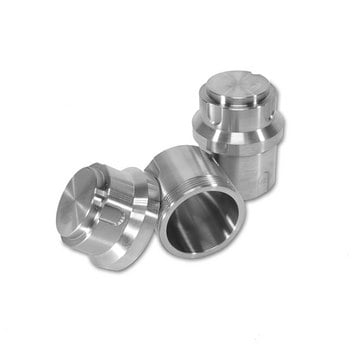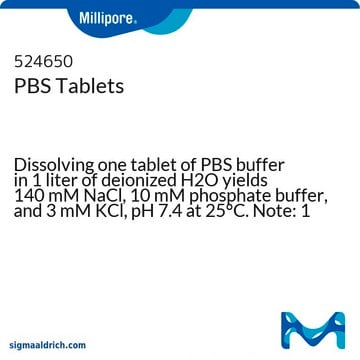MABX42
Anti-Marburg Antibody Virus
Sinónimos:
Anti-Marburg virus
Iniciar sesiónpara Ver la Fijación de precios por contrato y de la organización
About This Item
UNSPSC Code:
12352203
NACRES:
NA.41
Productos recomendados
biological source
mouse
Quality Level
conjugate
unconjugated
antibody form
purified antibody
clone
monoclonal
form
solution
species reactivity
all
packaging
pkg of 1 mg (MABX42-1KC)
pkg of 10 mg (MABX42-10KC)
technique(s)
ELISA: suitable
isotype
IgG1
relevant disease(s)
infectious diseases
shipped in
wet ice
storage temp.
2-8°C
Specificity
Marburg Virus
Immunogen
Native Marburg Virus
Application
This mouse monoclonal antibody, Cat. No. MABX42, is tested for use in ELISA for the detection of Marburg Virus.
Target description
Marburg virus is considered the most dangerous virus in the world with a fatality ratio of up to 88%. Like Ebola vrus it is an RNA virus in the Filoviridae family. It is a hemorrhagic fever virus that causes convulsions and bleeding of mucous membranes, skin and organs. The reservoir host is the African fruit bat Roesettus aegyptiacus.
Linkage
Both MABX42 and MABX43 recognize Marburg Virus
Physical form
Purified mouse monoclonal in buffer containing 10 mM Phosphate Buffered Saline, pH 7.2 with 0.09% Sodium Azide
Reconstitution
Please refer to Certificate of Analysis for concentration.
Storage and Stability
Store at 2-8 °C. For long-term storage, freeze at -20 °C
Disclaimer
Unless otherwise stated in our catalog or other company documentation accompanying the product(s), our products are intended for research use only and are not to be used for any other purpose, which includes but is not limited to, unauthorized commercial uses, in vitro diagnostic uses, ex vivo or in vivo therapeutic uses or any type of consumption or application to humans or animals.
related product
Referencia del producto
Descripción
Precios
Storage Class
12 - Non Combustible Liquids
wgk_germany
WGK 2
flash_point_f
Not applicable
flash_point_c
Not applicable
Certificados de análisis (COA)
Busque Certificados de análisis (COA) introduciendo el número de lote del producto. Los números de lote se encuentran en la etiqueta del producto después de las palabras «Lot» o «Batch»
¿Ya tiene este producto?
Encuentre la documentación para los productos que ha comprado recientemente en la Biblioteca de documentos.
Nuestro equipo de científicos tiene experiencia en todas las áreas de investigación: Ciencias de la vida, Ciencia de los materiales, Síntesis química, Cromatografía, Analítica y muchas otras.
Póngase en contacto con el Servicio técnico







